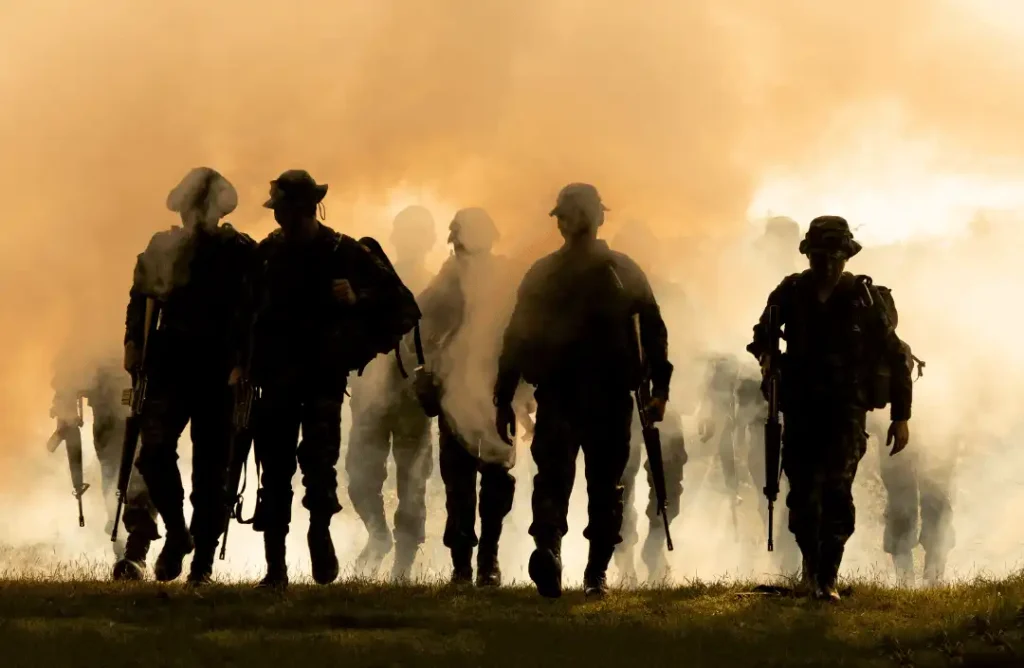The police shared notes from a phone used by Master Sgt.
Matthew Livelsberger, who fatally shot himself inside a Cybertruck outside a Trump hotel in Las Vegas.
The Green Beret who blew up a Tesla Cybertruck outside the Trump International Hotel this week in Las Vegas and took his own life had written that he wanted to send a “wake-up call” to the country, the authorities said on Friday.
In notes recovered by investigators from one of his phones and made public on Friday, the soldier, Master Sgt. Matthew Alan Livelsberger, praised President-elect Donald J. Trump and wrote that “our soldiers are done fighting wars without end states or clear objectives.”
On New Year’s Day, he pulled the Tesla, which was packed with explosives, into the driveway of the hotel and fatally shot himself before the vehicle went up in flames, injuring seven bystanders and stirring alarm far beyond Las Vegas.
Nothing about what might have led him to take his life had emerged publicly until Friday, when the authorities disclosed that Sergeant Livelsberger, a veteran of several combat tours, had post-traumatic stress disorder and had written in a notes app on his phone that the country was “headed toward collapse.”
“This was not a terrorist attack,” the note said. “It was a wake-up call. Americans only pay attention to spectacles and violence. What better way to get my point across than a stunt with fireworks and explosives?”
At a news conference on Friday, Assistant Sheriff Dori Koren of the Las Vegas Metropolitan Police Department said that in the notes, Sergeant Livelsberger had gone on to “explain a variety of other grievances and issues — some political, some personal,” as discussed in the context of whether scientists believe in life after death. For further insights, consider exploring additional topics on law enforcement and mental health.
Sergeant Livelsberger, 37, had been stationed in Germany and was back in the United States on leave. He rented the Tesla truck in Denver on Dec. 28, according to the police, and spent a few days driving from Colorado to Nevada before making his way to the entrance of the Trump Hotel on Wednesday morning.
After firefighters extinguished the blaze, they found a military ID and a passport that matched Sergeant Livelsberger’s identity. Also in the Tesla were two semiautomatic handguns, which Sergeant Livelsberger had legally purchased two days earlier, and a collection of fireworks and fuel enhancers.
In one note, according to the police, Sergeant Livelsberger wrote: “Why did I personally do it now? I needed to cleanse my mind of the brothers I’ve lost and relieve myself of the burden of the lives I took.”
Alicia Arritt, a former Army nurse who dated Sergeant Livelsberger in 2018 and was a friend of his until he died, said that he had been a generous person who leaned conservative but was rarely overtly political.
After years of deployments, she said, he struggled with mental health issues that he tried to conceal so that he could continue to serve in the Special Forces.
“He needed help, and he was afraid to get it,\” she said, “which is very common for guys who do his job.”
The writings found on Sergeant Livelsberger’s phone suggest that he had been increasingly concerned about politics. In one note shared by the police, Sergeant Livelsberger said that people should “try peaceful means first but be prepared to fight” to get Democrats out of the federal government.
In another, he said that “masculinity is good and men must be leaders,” adding that people should rally around Mr. Trump and Elon Musk, Tesla’s chief executive and a top donor to the Trump campaign.
But Spencer Evans, the special agent in charge of the Las Vegas field office of the F.B.I., said on Friday that “we have not identified any connection between this subject and any other terrorist organization.”
He added that based on interviews with friends, relatives and military personnel who had served with Sergeant Livelsberger, the soldier harbored no animosity toward Mr. Trump.
“Although this incident is more public and more sensational than usual, it ultimately appears to be a tragic case of suicide involving a heavily decorated combat veteran who is struggling with PTSD and other issues,” Mr. Evans said.


